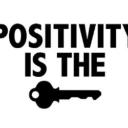Yahoo Answers is shutting down on May 4th, 2021 (Eastern Time) and beginning April 20th, 2021 (Eastern Time) the Yahoo Answers website will be in read-only mode. There will be no changes to other Yahoo properties or services, or your Yahoo account. You can find more information about the Yahoo Answers shutdown and how to download your data on this help page.
Trending News
Is it worth upgrading RAM?
I have an HP Pavilion dv6-3143cl and currently it has 4GB of RAM. I've had the laptop for over 2 years now and it's starting to run slower and takes about 2 minutes to boot (I clean the cache, history and defragment once every week. I always keep it virus-free, so that is not the source of the problem. It's the age). I want to upgrade from 4GB to 8GB, this one to be specific
http://www.crucial.com/store/mpartspecs.aspx?mtbpo...
I am going to be using the laptop for at least 2 more years before I will save up enough to buy a new computer. Is it worth upgrading?
3 Answers
- DominicLv 77 years agoFavorite Answer
A lot of the stuff you're doing is pretty well pointless since you're running Windows 7. I'll explain.
1. Clearing cache
Cache improves your computer's performance by temporarily saving stuff you might use again in the near future. On top of that, the cache has a limited size. Old files are deleted automatically to make room for newer ones. There are only very specific circumstances when you would need to clear the cache and doing it regularly is hurting performance.
2. Defragmenting frequently
Unlike XP and earlier, Vista and later defragment your hard drives automatically. Also, some file fragmentation is actually OK. Large file fragments don't slow performance so it's more trouble than it's worth to move them. Again, there are only a few specific circumstances where you'd need to run Disk Defragmenter manually.
Things to avoid
Running your antivirus and antimalware programs manually saps resources. Real time antivirus programs will scan files are they're being used so don't bother to run it manually unless you know you have a problem.
Be careful when downloading free software. Often free software comes bundled with other free bits such as toolbars and other programs whose sole purpose is to serve advertisements. Read every screen during installation to avoid installing. Do not simply click the next button until the install process is finished. Follow these guidelines and you can uninstall your antimalware programs because there won't be any junk for them to find.
Avoid cleaning the registry. Microsoft doesn't support it. Yes, sometimes one has to use the registry editor to change a setting in Windows. But since you won't be installing every "free" program that catches your eye, it's unlikely the registry will fill up with garbage. Save yourself the trouble and get rid of any registry cleaning software.
Okay, so now that we've covered what you shouldn't do lets focus on what you should do.
Uninstall programs you don't need. Open Programs and Features, identify programs you don't use of that your computer doesn't need and uninstall them all. Get rid of toolbars especially. I really hate toolbars.
Identify the programs you want to run when your PC starts.
The more programs you have that start at boot the longer it's going to take to get your PC to become fully ready from a cold boot. One method is to do a clean boot. Then, one at a time, re-enable the program you want to start up when the PC boots.
Clean boot Windows
http://support.microsoft.com/kb/929135
Use sleep instead of shut down. Your PC will resume faster from sleep then waiting for a cold boot.
You'd think adding more RAM would help but that might not be the case. I imagine that you sometimes run off the battery. The more RAM you have the more power it takes to run it. On top of that, Windows 7 will want to load a good chunk of RAM with stuff it thinks you might use next which will also have the effect of increasing disk I/O further reducing battery life. There's always a trade off between performance and battery life on a portable computer.
Finally, if things have gotten so bad you can't stand it, copy off your personal files then do a recovery according the manufacturer's instructions. Your PC will be reset to like when it was first out of the box.
Reinstall your programs then copy over your personal files. As long as you keep up to date on Windows Updates and avoid the bad stuff you should be fine for a good long while.
- Ds_EsnceLv 57 years ago
Hi Michal,
it may be how much data [ videos, games, photos, word files, etc ] which could be scavenging the process time. IF your computer has the 'Start' button, click on it, click on 'Run' command. In this window type 'Csconfig' click on 'Startup' tab. Check the boxes you do Not want to start up e.g AV Anti-Virus, McAfee Security, etc. This will regain some speed. The other speed robbing items are 'bloatware.'
Trial licenses which allows you to try for 30 days, @ the end if you want to use the software it asks you
to purchase a license. Uninstall and remove from HDD. This should restore some, of your speed.
If you are still set on upgrading it is probably feasible to purchase a new Laptop. Happy computing..
Source(s): :-}} Computer Specialist - 7 years ago
Wait with baying.Try to install a new operating system and see how it works.If continues to be slow, then buy a memory.





